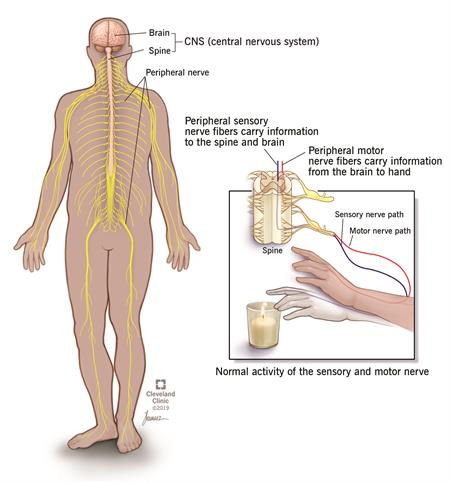Neuropathy is damage or dysfunction of one or more nerves that typically results in numbness, tingling, muscle weakness and pain in the affected area. Neuropathies frequently start in your hands and feet, but other parts of your body can be affected too.
Neuropathy, often called peripheral neuropathy, indicates a problem within the peripheral nervous system. Your peripheral nervous system is the network of nerves outside your brain and spinal cord. Your brain and spinal cord make up your central nervous system. Think of the two systems working together this way: Your central nervous system is the central station. It is the control center, the hub from which all trains come and go. Your peripheral nervous system are the tracks that connect to the central station. The tracks (the network of nerves) allow the trains (information signals) to travel to and from the central station (your brain and spinal cord).
Neuropathy results when nerve cells, called neurons, are damaged or destroyed. This disrupts the way the neurons communicate with each other and with the brain. Neuropathy can affect one nerve (mononeuropathy) or nerve type, a combination of nerves in a limited area (multifocal neuropathy) or many peripheral nerves throughout the body (polyneuropathy)


